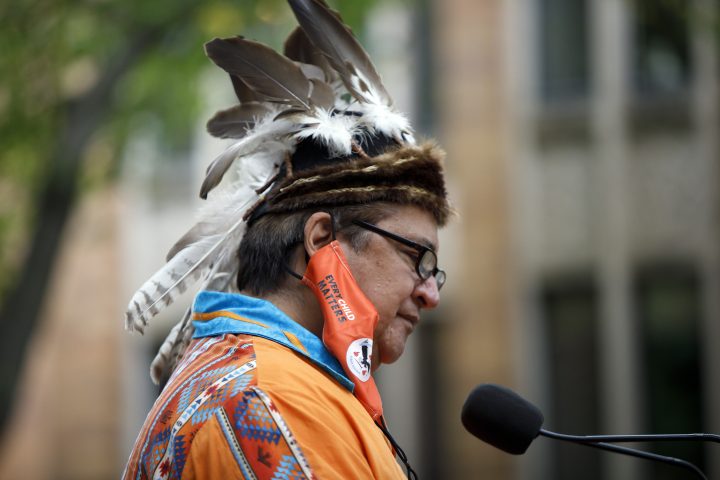As First Nations, Inuit and Métis delegates prepare to meet with Pope Francis at the Vatican, one First Nations leader in Ontario says the emphasis for change must come from Rome.

Chief Stacey LaForme, of the Mississaugas of the New Credit First Nation, said the days of “bending the knee to the greater father are long gone” and called on the pope to travel to Canada if he is serious about reconciliation.
“If I was asked I wouldn’t go,” he told Global News. “Maybe those attending have a strategy and they will make incredible progress and I will commend them for their success but the appearance troubles me.”
A delegation made up of 32 Indigenous elders, knowledge keepers, residential school survivors and youth from across Canada is travelling to Rome.
Métis and Inuit delegates will meet with Pope Francis on Monday and First Nations delegates will hold a meeting at the Vatican on Thursday, March 31.
The trip will conclude with “a final audience” with Pope Francis on April 1, according to the Canadian Conference of Catholic Bishops (CCCB).
Bishop Raymond Poisson, the president of the CCCB, said the meetings would allow Pope Francis to address “ongoing trauma” as well as the role the Catholic Church played in the residential school system “which contributed to suppression of Indigenous languages, culture and spirituality.”
The truth and reconciliation commission concluded in 2015 that Canada’s residential school system amounted to a “cultural genocide.”
The Assembly of First Nations said in a media release the purpose of the trip was to seek justice for “genocide in Catholic-run residential institutions including to seek an apology to be delivered in Canada” by the Pope.
Last year, the Canadian government declared Sept. 30 the National Day for Truth and Reconciliation.
The summer was marked by the discovery of several burial sites on the former grounds of residential schools. The remains of 215 children were found in British Columbia as well as 751 unmarked graves in Saskatchewan.
“If he/the church wants to make amends and is sincere why not come here?” Laforme said. “He certainly doesn’t need first-hand testimony to realize and acknowledge the past atrocities of the church.”
The delegations to Rome were originally scheduled to take place in December but a rise in COVID-19 infections delayed the event.
“Show me on the ground where it happened not across the waters from a comfy chair,” Laforme said.








Comments